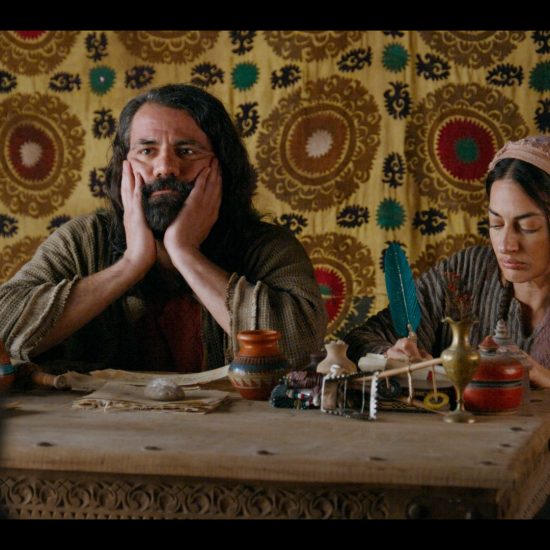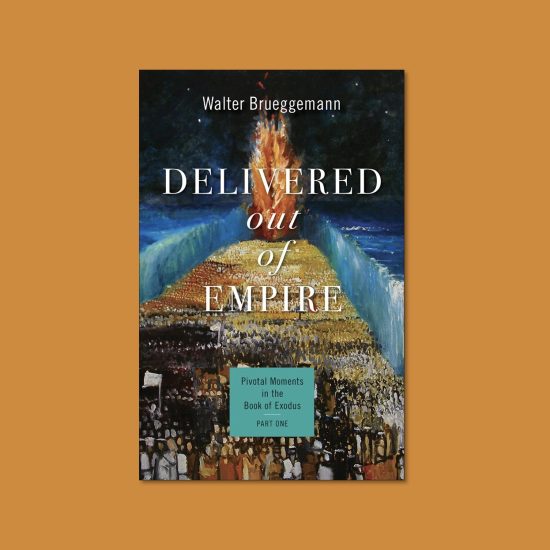 Eager giving
Eager giving
Formations: October 16, 2016
Scripture: Exodus 35:4-10, 21-29
 Michael OlmstedYou thought building campaigns and pledge drives were created in modern times, but here we are in the ancient book of Exodus reading about those very ideas!
Michael OlmstedYou thought building campaigns and pledge drives were created in modern times, but here we are in the ancient book of Exodus reading about those very ideas!
The wilderness is not Israel’s destination, and they have not begun to fully know God’s extravagant grace. In Exodus 34:6-7, Moses begins to understand the character of this “compassionate,” “merciful” and “very patient” God who forgives “every kind of sin and rebellion.”
Today’s text follows the tragic failure of the Israelite’s desire to fashion a golden calf as their substitute for the God who freed them from slavery (Exodus 32:1-23). In the place of their foolish spiritual action, God calls Israel back to himself and to the task of building the elaborate tent enclosure that would be their traveling temple in the wilderness.
The Lord commanded Moses to collect from all the people “gift offerings” from “whoever freely wants to give.” There follows an amazing list from gold, silver and copper to fine linen, acacia wood, oil for the lamps and gemstones for the priests’ vest and chest pendent. People of varied skills were invited to craft and build everything, including the priests’ garments. Repeatedly the requests were addressed to “everyone.” No one was excluded and each one had a role to play.
The people responded immediately and generously (v. 21). Many brought their personal jewelry. Although in that day women were not permitted many public activities, there is a strong display of their talents as weavers, seamstresses and dyers of fabric. This is an early emphasis on labor and ability as a means to give to God alongside material offerings.
Although this giving is tangible and visible, the text is all about the motivation of the heart. We wonder if the enthusiasm of those giving was the result of fear after God punished them for the golden calf incident. My preference is to view their actions as the result of experiencing God’s grace and forgiveness, the discovery that Jehovah is nothing like the “gods” of this world.
Israel is learning to trust God, who continually stays with them on this wilderness journey. God knows them, loves them and sees what they can become. They have been slaves to the Egyptians, slaves to their fears and ignorance, slaves to all the world’s twisted ideas about religion. But they are slowly discovering this God who does not fit the world’s thinking.
Now God urges them to trust him and build this tabernacle where they can worship him and sense his presence in their midst. It is wonderful to see how God draws them close by inviting them to offer their gifts to build this place of worship and their abilities to fashion it. They give, create and then celebrate this tabernacle. All that is physical or outward is the result of something deep in their heart: gratitude, hope and faith. These are the hallmarks that identify any authentic gift to God.
“Whoever freely want to give” (v. 5) and “all the Israelite men and women who were eager to contribute something” (v. 29) characterizes any true gift to God. Since we are not commanded by God to build or decorate a temple in our day according to precise directions, we learn from this text a great deal about the stewardship, offerings, and sacrifices.
What is the precise definition of a tithe, offering, sacrificial gift or stewardship? Exodus 35 does not offer a percentage, and the Old Testament describes several tithes, but it does identify the joy and generosity of those who experienced God’s love and forgiveness.
We also have firsthand experience with God’s forgiveness, but our faith is more fully informed by the ultimate example of the Savior. We witness the unfolding of the gospel in the books of the Old Testament, recognizing that grace is not a mere theological concept but the very nature of God. Our relationship with God is never static or complete but matures and deepens as we give ourselves to him daily. The more we experience God’s love the more we give to him.
What do you give to God: your love, money, time, service through various ministries of a church, involvement in programs for families living on the poverty level, tutoring school children, volunteering at a nursing care facility, etc.? Most of us are seeing more clearly the needs of people outside the church, people like those Jesus encountered as he traveled the dusty roads and villages of Palestine.
We do not all have the same resources, talents or abilities, but like those who fashioned the tabernacle and its utensils, everyone has something to offer to God. Look around your world and think about how Jesus would see it. Where is God at work? Where is there a need that you could turn into an outlet for God’s grace?
Giving is not a call to shirk responsibility, ignore your family, waste your resources or play the martyr role. Eager giving is our response to God’s goodness and the desire to help others discover God truly loves them. God’s Spirit does not inhabit a sacred shrine fashioned by our hands. God lives in your heart. Can the world see “Christ in you” as Paul describes in Colossians 1:26-27?
Retired after more than 45 years in pastoral ministry, Michael K. Olmsted enjoys family, supply preaching and interim work, literature, history, the arts and antiques.
Formations is a curriculum series from Smyth & Helwys Publishing, Inc. through NextSunday Resources.
The PDF download requires the free Acrobat Reader program. It can be downloaded and installed at https://get.adobe.com/reader.



